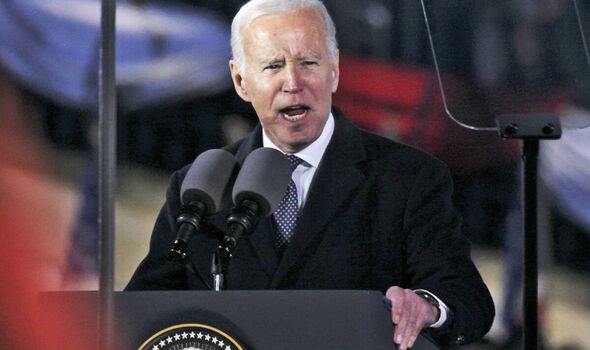President Joe Biden concluded the NATO summit on Wednesday July 12, by strongly condemning Russian President Vladimir Putin, accusing him of harboring a “craven lust for land and power.” The summit resulted in Ukraine receiving increased security assurances from the United States and its allies to defend against Moscow’s aggression. While Ukraine had hoped for immediate NATO membership, a framework for bilateral negotiations was established, offering long-term protection and support.
NATO Offers Long-Term Protection to Ukraine
Members of the world’s most powerful military alliance, NATO, extended a promise of long-term protection to Ukraine. Ukrainian President Volodymyr Zelenskiy had criticized the refusal to provide an invitation or timetable for NATO membership as “absurd.” However, the G7 group, comprised of the United States, Britain, Canada, France, Germany, Italy, and Japan, issued a declaration launching bilateral negotiations. The negotiations aim to establish military and financial support, intelligence sharing, and immediate response measures in the event of a Russian attack. This commitment by NATO leaders demonstrates a powerful statement of support for Ukraine.
Biden: Putin Underestimated NATO’s Resolve
During a speech at the NATO summit in Vilnius, Lithuania, President Biden emphasized that Russian President Putin had gravely misjudged the determination of the U.S.-led military alliance. Biden proclaimed that NATO has become stronger, more energized, and more united than ever before in its history. He highlighted that Putin, driven by a “craven lust for land and power,” launched a brutal war on Ukraine, believing that NATO would crumble under pressure. However, Biden asserted that Putin was mistaken, as NATO remains resolute and committed to protecting democratic values and defending its member nations.
Zelenskiy Sees Meaningful Success but Seeks Further Support
President Zelenskiy acknowledged the outcome of the summit as a “meaningful success” for Ukraine, despite the absence of an invitation or timetable for NATO membership. He expressed satisfaction with the flurry of announcements regarding military aid for Kyiv and emphasized that security guarantees for Ukraine were now in place on the path to NATO. Nevertheless, Zelenskiy pressed for additional support, particularly in terms of acquiring long-range weapons. He raised this issue during his bilateral meeting with President Biden, who reassured Zelenskiy that the United States was fully committed to meeting Ukraine’s needs. Zelenskiy’s disappointment over the lack of immediate membership was tempered by the recognition of the significant security victory achieved for Ukraine.
In conclusion, the NATO summit concluded with President Biden accusing Russian President Putin of having a “craven lust for land and power.” While Ukraine did not receive an invitation or timetable for NATO membership, the summit resulted in increased security assurances, long-term protection, and bilateral negotiations for military and financial support. President Zelenskiy described the outcome as a “meaningful success” and expressed the need for additional support, which President Biden acknowledged and pledged to address. The summit showcased NATO’s unity and resolve in the face of Russian aggression, underscoring the alliance’s commitment to Ukraine’s defense















